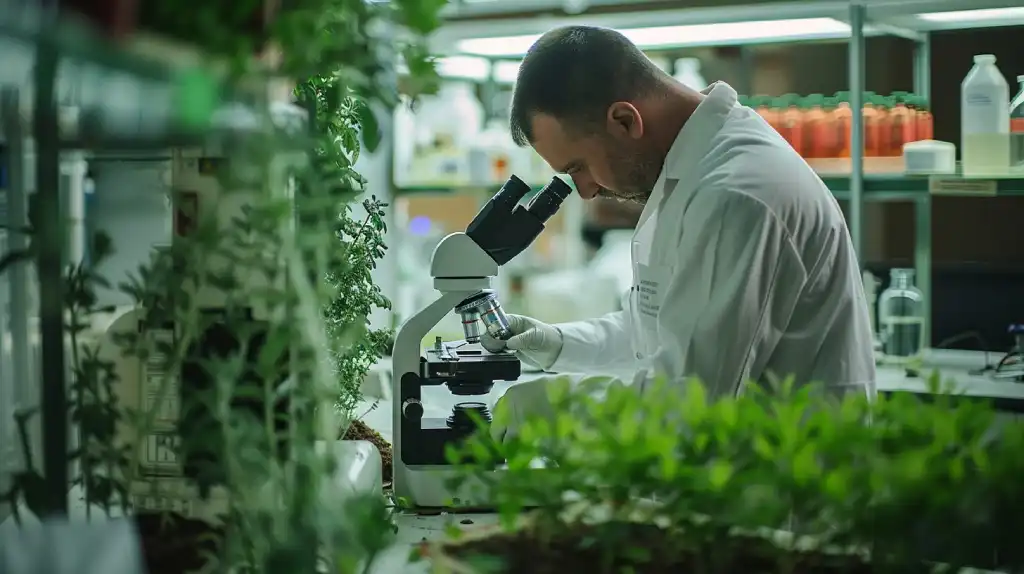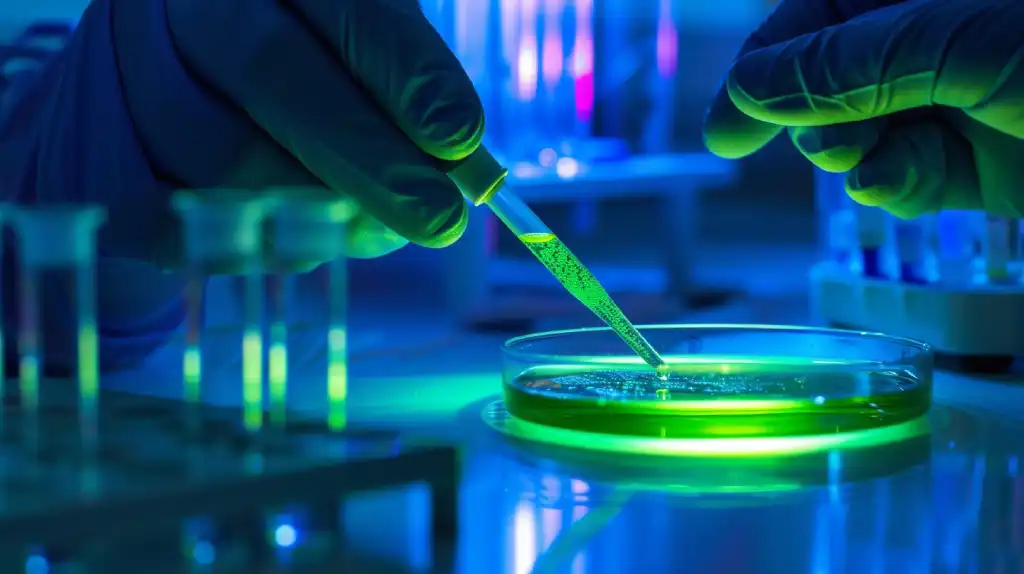Genetic engineering is crucial in sustainable agriculture by developing crops with improved features such as drought resistance, pest resilience, and improved nutrient content.
This reduces reliance on harmful chemicals, increases yields in challenging conditions, and promotes environmentally friendly farming practices.
Farmers are seeking information on how genetic engineering can be vital to sustainable agriculture practices. They want to know the specific ways genetic engineering can fix issues such as climate change, food shortage, and environmental impact.
Changing the genes of plants and animals can help us grow food in a better way. Scientists can make plants and animals stronger, so they can grow more food and be healthier. This can help us feed more people and protect the environment.
What is Genetic Engineering?
Genetic engineering is a scientific method that modify the genetic structure of organisms, including crops. This process allows for specific properties, such as drought resistance or increased nutritional value, to be introduced into plants.
These modifications can be important in resolving agricultural challenges and supporting sustainable farming practices.
How Genetic Engineering can be Vital to Sustainable Agriculture Practices
Genetic engineering is vital for sustainable agriculture by increasing crop yields, reducing pesticide use, enhancing nutrition, and improving crop resilience to climate change.
Genetic engineering offers potential solutions to agricultural challenges. This technology aims to change plant and animal genetic structure for preferred properties.
The ability of genetic engineering to handle food security, climate change, and resource conservation results in exploration of its applications in sustainable agriculture.
Key Facts
Increased Yields
Genetically modified crops have been shown to increase yields by up to 25%, providing more food from the same amount of land and reducing the need to clear new farmland.
Pesticide Reduction
The adoption of pest-resistant genetically modified crops has reduced the use of chemical pesticides by an estimated 37%, leading to healthier ecosystems and safer food products.
Water Conservation
Genetic engineering has led to the development of drought-tolerant crops that can reduce water usage by up to 50%, making agriculture more sustainable in water limited regions.
The Vital Role of Genetic Engineering in Sustainable Farming

Increasing Crop Productivity and Resource Efficiency
Increased Yields:
Genetic engineering can boost crop yields highly by developing varieties resistant to pests, diseases, and adverse weather conditions. This can help meet the growing global demand for food while reducing the need for new agricultural land.
Improved Resource Use:
Crops engineered for efficient water and nutrient uptake can reduce agricultural inputs, such as fertilizers and irrigation, reducing environmental impacts.
Lessening Environmental Impacts
Reduced Chemical Use:
By developing crops with natural pest and disease resistance, genetic engineering can highly decrease the reliance on harmful pesticides, protecting human health and biodiversity.
Improved Soil Health:
Crops engineered to improve soil health can contribute to more sustainable agricultural practices by improving soil structure and fertility.
Boosting Food Security and Nutrition
Nutrient-Rich Crops:
Genetic engineering can be used to develop crops with higher levels of essential vitamins, minerals, and micronutrients, handling malnutrition and hidden hunger.
Climate Resilience:
By creating crop varieties that are tolerant to extreme weather events, such as drought, heat, and flooding, genetic engineering can help secure food security in a changing climate.
Responsible Development and Distribution
While the potential benefits of genetic engineering are substantial, responsible development and distribution are essential.
Strict Safety Assessments:
Thorough scientific analysis is crucial to secure the safety of genetically modified organisms for human health and the environment.
Public Engagement:
Open dialogue and transparent communication are vital for building public trust and acceptance of genetic engineering.
Ethical Considerations:
Tackling ethical concerns and securing fair access to the benefits of genetic engineering are essential for its sustainable adoption.
By carefully applying genetic engineering, we can create a more sustainable, strong, and balanced food system that supports both people and the environment.
Environmental Impact

Soil Health
Genetic engineering can support soil health by developing crops that improve soil structure or contribute beneficial nutrients. This improvement helps maintain the long-term productivity of the land and supports sustainable farming practices.
While there are concerns about the impact of genetically modified crops on biodiversity, responsible management and regulation can reduce these risks.
By focusing on crops that support precious biodiversity and reduce the need for extensive land use (deforestation), genetic engineering can contribute positively to environmental sustainability.
Challenges and Considerations
Ethical and Safety Concerns
Genetic engineering in agriculture raises ethical questions and concerns about long-term safety. It is essential to conduct thorough testing and maintain transparency to face these issues and gain public trust.
Regulatory Framework
The regulation of genetically modified organisms (GMOs) varies globally. Securing that there is a strong regulatory framework helps protect consumers and the environment, and it facilitates the safe adoption of advanced farming such as e-farming and new sustainable technologies.
Public Perception and Acceptance
Public perception plays a crucial role in the acceptance of genetic engineering in agriculture. Educating the public about the benefits and safety of GMOs is necessary to overcome misconceptions and build confidence in this technology.
Successful Implementations
Countries like the United States, Brazil, and India have seen significant success in adopting genetically modified crops. These crops have contributed to higher yields, reduced pesticide use, and improved food security.
Innovative Research
Ongoing research continues to develop new genetically modified crops that can face emerging agricultural challenges. For example, scientists are working on crops that can grow in saline soils or that have improved resistance to climate change impacts.
Conclusion
Genetic engineering is a vital tool to sustainable agriculture. By modifying plant DNA, scientists can create crops with increased yields, reduced reliance on harmful chemicals, improved nutrition, and greater resilience to climate change.
However, responsible development and public engagement are crucial for the successful and ethical application of this technology.
So, when farmers seek information on how genetic engineering can be vital to sustainable agriculture practices, the answer is, it can be vital in various described ways.
As research progresses, genetic engineering will likely play an even more critical role in sustainable farming.




